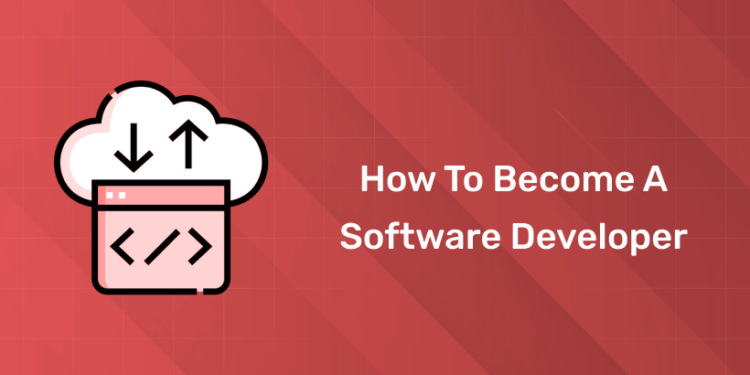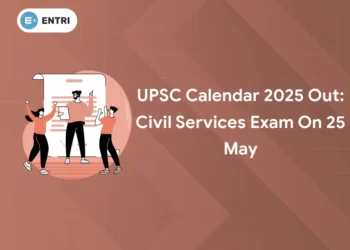Table of Contents
Becoming a Software Developer in 2024 can be a challenging endeavor, but with the right mix of hard work and smart preparation, you can take your first steps toward becoming one of the best at what you do. To help you on your journey, we’ve gathered ten ways to become a software developer in 2024, from top-rated blogs, social media influencers, and companies that are already leading the way today. It’s no secret that software development will continue to be an essential part of the business landscape, and many other years following it. As new technologies come out, we will see greater adoption among businesses as well as new roles being created to support these technologies. With this in mind, we need developers with the right skill sets to fill these roles – especially if you want to be one of them! Here are the top ways that you can achieve your goal of becoming a software developer and beyond! If you’re thinking about becoming a software developer in 2024, it’s never too early to start learning about software developer jobs and the technologies that will likely be in demand at that time. What are the best ways to enter the field? Which skills will matter most in five years? What jobs are expected to have the most openings and the highest salaries? We consulted industry experts and examined past data to find the answers so you can make an informed decision about your future career path. See all 10 ways here!
Steps to Become a Software Developer in 2024?
1) Learn The Basics
In order to become a software developer, you must first learn some basic coding languages. C++ is by far one of the most versatile and useful programming languages. Developed in 1983 by Bjarne Stroustrup, C++ has grown over time into an easy-to-use language that’s now used by students, businesses, and governments around the world. Even if you’ve never coded before or don’t have any formal training, it’s not too late to start learning! There are plenty of online tutorials where you can begin at your own pace with little commitment—and all for free! Here are some great places to start Code Academy, Coursera, Code School, and Khan Academy. If you’re looking for something more hands-on, consider taking classes through a local community college or university. These schools offer both introductory courses as well as more advanced ones based on your experience level. For example, MIT offers an Introduction to Computer Science course that covers C++ fundamentals such as variables, operators and control flow statements. It also offers an intermediate course called Data Structures & Algorithms which dives deeper into topics like linked lists and binary trees while also covering other foundational computers science concepts like data compression and cryptography.
Learn Coding in your Language! Enroll Here!
2) Learn by Teaching
To sharpen your skills as a programmer, it helps to pick something you’re interested in and teach it. It doesn’t matter whether you’re teaching 5-year-olds or 50-year-olds, learning by teaching is one of the best ways for anyone—especially developers—to deepen their understanding of any topic. If you can teach others about something that fascinates you, not only will your passion shine through but also your ability to break complex concepts down into simple pieces. This skill will serve you well throughout your career. Teaching gives you new insights into how other people learn and makes your brain work harder at figuring out how to explain things simply. You don’t need formal training or permission from an employer to start teaching. In fact, many experts argue that getting permission may be unnecessary because there are plenty of online communities where you can volunteer your time to help people with basic coding questions (for example). One way or another, start talking about what you know with people who want to listen—and make sure they understand what you’re saying! If you get stuck on a concept, move on to another topic and come back later. Keep going until you feel like you’ve figured it out. Once that happens, try explaining your new knowledge again. If someone has more questions or seems confused, try coming up with different ways to present your explanation until everyone understands. Then ask them what they thought so far and if anything needs clarification before moving on to the next steps.
Learn to code from industry experts! Enroll here!
3) Enroll in an Accelerated Program
One option for getting into software developer jobs quickly is to enroll in an accelerated program. These programs can be as short as nine months or last up to two years and sometimes offer students a high-paying job upon graduation. The biggest downside is that you don’t have time for other courses, like those in entrepreneurship, product management or design, which would give you skills outside of development. If you’re just looking for a career change, then consider taking classes at night or on weekends before enrolling full-time. This will allow you to keep your current salary while learning new skills. However, if you want to learn how to become a developer right away and start earning more money right away, then it might make sense to go all in. That said, there are risks involved with doing so: some boot camps won’t accept students who aren’t ready for immersive learning environments. To find out if it’s right for you check out Course Report. They provide information about all types of boot camps from around the world. You’ll get answers to questions like What are their entry requirements? How much does it cost? Is financial aid available? And much more.
4) Bootcamp/Coding School Graduates Are Still Appreciated
Bootcamp grads won’t face as much pushback from hiring managers as they might have two years ago. This is partly because companies want people who can hit the ground running, and coding boot camps do an amazing job of weeding out those without a passion for software developer jobs. Bootcamp grads may also be a more financially attractive option for startups, which are hungry for people who can contribute quickly without burning through cash on training them. If you are looking at coding schools/boot camps try Fullstack Academy or App Academy. If you prefer self-teaching then try FreeCodeCamp. Both are highly recommended by professionals. The former will give you official certificates and connections with employers, while if you choose self-learning, it’ll just take longer. So it’s up to your choice here. Either way, learn how to code first! Then think about whether you want to go into freelancing or not. Even if you don’t plan on freelancing, learning how to program makes life easier and gives you valuable insight into new technologies that will become part of your life (like AI). If programming isn’t something that interests you but would like to be able to communicate better with programmers don’t worry there are plenty of other tech skills that are in high demand like data science (Machine Learning), UX design (designing user interfaces) and DevOps (monitoring IT infrastructure). All these fields use programming languages too so even though their titles don’t sound technical they’re definitely related.
5) Keep Moving Forward
Build up your tech portfolio and keep expanding your skills. By 2024, you’ll need ten years of experience just to get noticed. The moment you stop learning, you start becoming obsolete. Don’t let that happen! Keep pushing forward and don’t be afraid to try new things—it will make all the difference when it comes time for you to find your dream job in 5-10 years. You can have it all: job security, stability, flexibility, and enough money coming in so that you can actually enjoy life. If you’re willing to put in the work now, there’s no reason why you shouldn’t be able to achieve that. You might not be exactly where you want to be at 22 or 25 or even 30, but with every passing year, you’ll inch closer and closer. And then one day, everything will finally fall into place and your dreams will come true. Just remember: it won’t happen overnight. It takes hard work over many years of dedication (and more than a few late nights). But if you stick with it, there is light at the end of the tunnel—you just have to stay focused on what matters most (like making sure your code is as clean as possible). You know what they say: Rome wasn’t built in a day…or something like that. Whatever – Just do it! It is important to realize that nothing happens overnight.
6) Get Programming Experience
It’s hard to learn how to program without some real-world experience, but that doesn’t mean you have to build a portfolio before launching your career. Instead, you can take on side projects and tackle coding challenges as they come up throughout your life. It will be more difficult—but not impossible—to land your first job if you don’t have any work samples or side projects under your belt. But there are plenty of ways for newbies to get their feet wet, from short online courses through Udacity and Coursera, which offer prerecorded video lectures you can watch at your own pace, all the way up to getting professional mentorship from experienced developers who are willing to provide free code critique. The latter option is ideal because it allows you to see what kind of feedback you’ll get when looking for a job. The best part is, it’s all free! So sign up with one of these services today and start learning how to become a software developer in 2024! You’ll be surprised by how much you can do on your own. You may even want to keep a list of interesting projects (both personal and non-personal) that you want to create over time. That way, you won’t forget about them once something else comes along. This is also a great idea for building up a portfolio; simply update it every so often with new pieces so employers know what kinds of things you’re working on now!
7) Attend Meetups, Conferences, and Hackathons
Join and attend meetups, conferences, and hackathons. These events will give you opportunities to connect with others, find mentors, share your work, and discover new projects you can help out with. If there aren’t any of these events happening near you or that interest you, create one yourself! The software engineer course is very welcoming of newcomers and would love for people to get involved. It’s also a great way to learn more about what other developers are working on, which could spark ideas for your own projects. Most importantly, you should be meeting people who are currently successful as developers. You want to be around those who are achieving their goals while learning from them so that they can provide guidance along your journey. They’ll be able to offer advice and insight into how they got where they are today, allowing you to adapt their strategies and apply them to your own career path. They may even offer job opportunities down the line if they see potential in you! This strategy is incredibly powerful because it allows you to follow someone else’s success trajectory and reach similar heights. At first glance, it might seem like getting ahead takes a ton of hard work and luck—but having access to people who have already done it proves otherwise. Get connected by attending meetups, conferences, and hackathons! Include both local user groups (such as JUGS) & national/international user groups (such as JavaOne). No explanation needed – local/regional groups will allow an aspiring developer better access to programming resources such as universities/colleges etc., not to mention cheaper travel costs vs international/national events.
8) Develop Yourself Mentally
Having strong technical knowledge is critical for success as a software engineer course, but soft skills—things like knowing how to talk with your team members or having great time management skills—are equally important. According to Stack Overflow’s 2018 survey of more than 64,000 developers, soft skills were ranked as more important than basic programming know-how. To gain these essential soft skills, pick up a book on how to work well with others or attend a professional development workshop. As you work toward becoming an excellent software developer over time, be sure that you’re sharpening your technical chops at least once every six months. It’s easy to get rusty if you don’t use what you already know. You can do so by reading books about new technologies and attending conferences. If you want to make it as a software developer, consider doing both. Conferences are a great way to keep up with trends and learn from other experts. They also offer opportunities to network, which will help you advance your career. Keep learning: No matter where you are in your career, there’s always something new to learn when it comes to software development. A study from Global Knowledge found that 94 percent of respondents who took training courses felt they had become better developers after taking them. There are many different avenues available for self-learning, including online courses and tutorials; coding boot camps; college courses; meetups; books; blogs; podcasts; mentorship programs; conferences…the list goes on! Remember: Learning never stops. The best way to stay ahead is by constantly seeking out ways to grow yourself professionally—and personally!
9) Don’t Let Failure Keep You Down
Try, try again. It’s normal and even expected that you’ll fail when trying something new, but not trying because of fear of failure is another story. If you have an idea for a software engineer course and you think it would be useful to others, go for it! You may fail, but don’t let that keep you from moving forward. Instead of letting fear stand in your way, turn those fears into motivators and lessons learned. Keep doing what you love! In addition to listening to your fears and considering them with an open mind, learn how they manifest as obstacles so that when they do show up as barriers down the road they aren’t such surprising enemies. When you understand why something might be scary or intimidating, it’s easier to overcome. After all, if there weren’t any real risks involved, failure wouldn’t be an issue at all. So put yourself out there—keep learning and building. With time, practice, passion, patience, and perseverance you can become a successful software developer in 2024! Take Time Off to Reflect During tough times, it helps to reflect on where you are and where you want to be. This can help you clarify your goals and figure out what needs changing, whether that means shifting priorities or finding a different career path altogether. Don’t feel like you have to stay in technology forever; being open-minded about opportunities will allow you discover what works best for both your professional life and personal life moving forward.
10) Write Code Every Day
Writing code is like learning to ride a bike. You’ll never master it without practicing regularly. The best way to become a software developer is by writing code, and you don’t have to be an expert at it—you just need enough skill so that you’re no longer intimidated by it. One of our interviewees even said she has horrible, awful coding skills but because she learned when she was young and practiced every day, she knows enough programming basics that her company was willing to hire her despite her inexperience. If you can write basic lines of code on your own or with others, you should have no problem finding something as long as your skill set aligns with current trends. Look for positions where you can learn from experienced developers and work on projects that will help build your portfolio. If you’re interested in becoming a software engineer, consider building apps for mobile devices or creating bots using natural language processing (NLP). There are also new opportunities emerging in data science and artificial intelligence (AI), so keep up-to-date with what companies are looking for!












